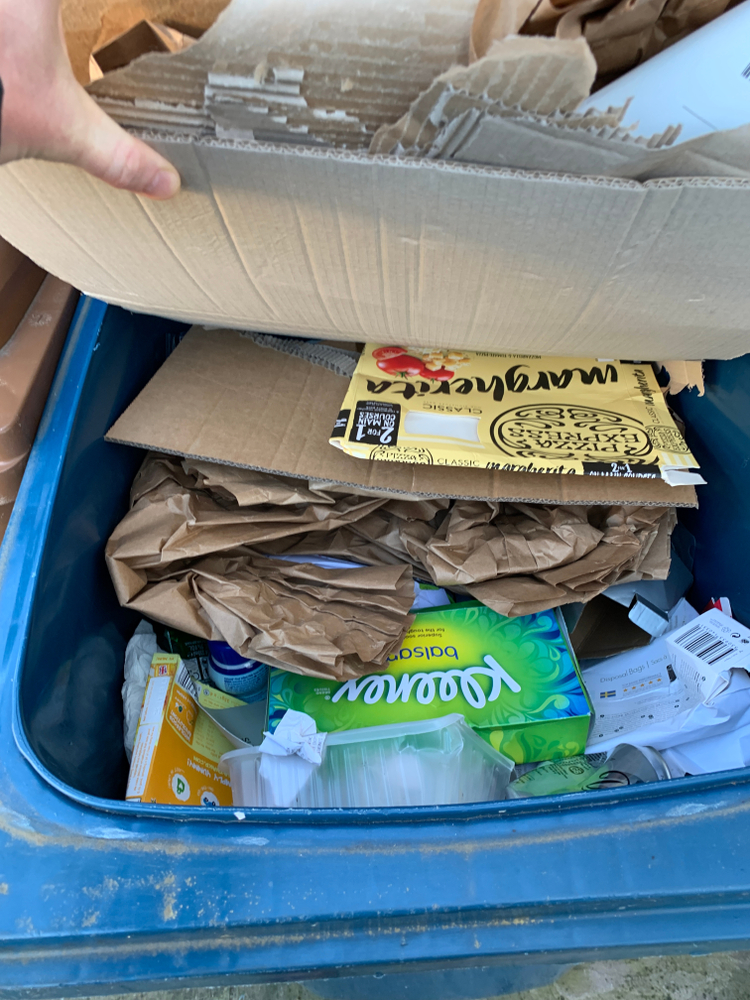This comes despite most residents not supporting the changes during a pilot.
From 31 January 2022, the council’s black bin collections of glass, plastic bottles, and cans and blue bin collections of paper and cardboard will move from every two to every three weeks.
Tameside’s fortnightly collections of residual waste and food and garden waste will not be affected by the changes.
In a statement, the council said it needed to make the saving across all its services “to balance the budget” due to “continuing pressures caused by the coronavirus pandemic, increased demand for services and government cuts of almost £200 million over the last 10 years”.
The council claims that introducing a charge of £25.63 per unit for replacement or additional recycling bins will save £190,000 a year, while it estimates changing the frequency of collections will save £370,000 a year.
‘Enormous pressure’
Cllr Allison Gwynne, Tameside council executive member for neighbourhoods, community safety and environment, said: “We, like every other council in the country, are under enormous pressure to make financial savings because of government cuts to our budget.
Doing nothing to make efficiencies is not an option
- Cllr Allison Gwynne, Tameside council executive member
“At the same time, we still need to safeguard funds for services that are valued the most by residents and in particular supporting and protecting vulnerable children and adults.
“Doing nothing to make efficiencies is not an option.”
Collections
According to council minutes, Tameside has seen the total amount of paper and cardboard collected in blue bins “steadily decreasing” during the past three years, while it says markets have also changed, with recent years seeing the value of the material dropping.

Though the council says the tonnage of glass, plastic bottles, tinfoil and cans presented for collection remains “quite constant”, it adds that the black bins have a large capacity and a lower presentation rate from residents, meaning they are not always full.
In response, Tameside trialled the proposed changes to collections across 5,376 properties in Stalybridge, Hyde, and Denton for three months from August to October 2021.
It also held two consultations on the proposals, one with the households involved in the pilots and one with the wider Tameside public.
Only around a third (32.7%) of those who took part in the trial and responded to the localised consultation were “supportive/understanding” of the changes to black bin collections, while only 30% were supportive/understanding about the changes to blue bin collections.
Within the wider consultation, just 20.4% of the 1,610 respondents were “supportive/understanding” of the proposed changes to black bin collections, while only 11.3% were “supportive/understanding” of the proposed changes to blue bin collections.
Despite the negative feedback, Tameside’s executive council approved the changes at a meeting on 15 December.
Replacement bins
Meanwhile, Tameside says it spends £241,000 a year delivering bins, plus the costs related to bringing back in those that are “abused or abandoned”.
The council says it has delivered around 15,000 bins per year since 1988 and now needs to address the “huge and unjustifiable demand”.
‘A huge difference’
Three other Greater Manchester authorities – Bury, Oldham, and Rochdale – already collect paper and card and glass, plastic bottles, cans, and tin foil every three weeks, while Trafford collects the materials on a four-weekly basis.
The changes will make a huge difference in saving limited funds so we can keep delivering vital services
- Cllr Allison Gwynne
Cllr Gwynne said: “The changes we’ve agreed have been shown to work very well operationally in the pilot areas – with no negative impact on collections – but we have also listened to residents’ feedback and included provision for extra bin capacity for larger households and a fee waiver for new bins in certain circumstances.
“The approach of reducing collection frequency of recycling bins to provide the efficient use of resources brings Tameside in line with numerous other Greater Manchester authorities, where again it has proven to work well.
“Ultimately, the changes will make a huge difference in saving limited funds so we can keep delivering vital services.”
Tameside
Representing an estimated population of more than 225,000, Tameside metropolitan borough council had a household waste recycling rate of 47.2% in the 2020/21 financial year.
Waste management company Suez manages Tameside’s waste under a seven-year contract worth £1 billion signed with the Greater Manchester Combined Authority in 2019 (see letsrecycle.com story).












Subscribe for free